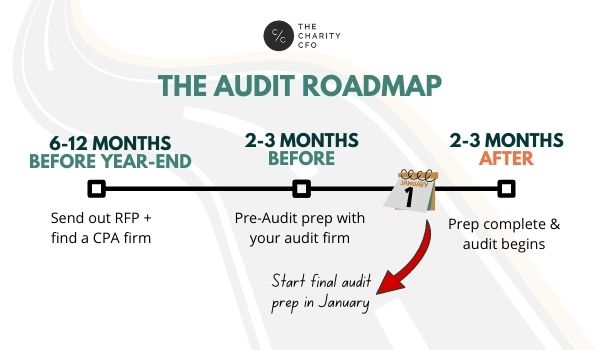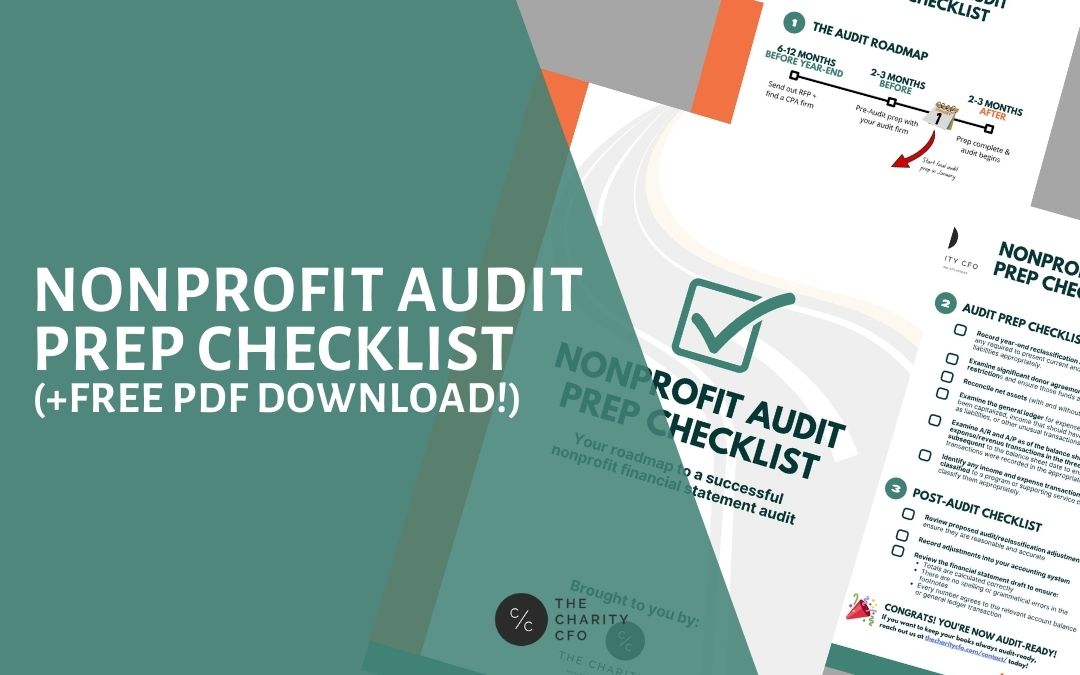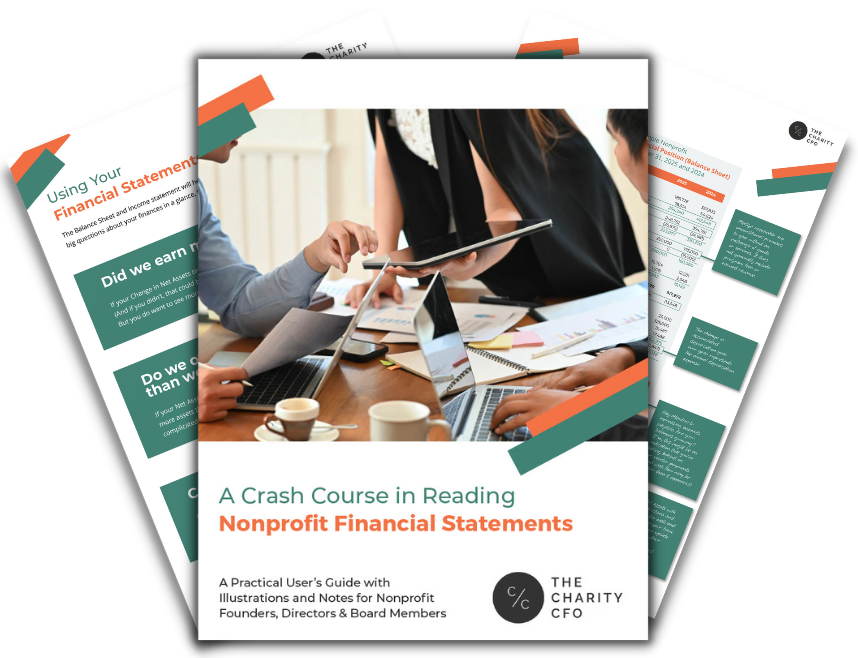

Many nonprofit organizations both large and small need to undergo a financial statement audit every year. Preparing for a nonprofit audit can be overwhelming and anxiety-filled, especially if it’s your first audit or you don’t have a strong and experienced financial team.
But an audit doesn’t have to scare you or your management team. The most important thing you can do is be prepared. That’s why our in-house team of 6 former nonprofit auditors helped put together this guide to nonprofit audit checklist to make sure your audit goes as smoothly as possible.
This article will discuss financial statement audits for nonprofit organizations. We won’t deal with other types of nonprofit audits , like compliance audits or governmental audits, which can differ in certain respects.
A financial statement audit is a thorough review of your financial statements to determine if your financial statements present fairly, in all material respects, in accordance with generally accepted accounting principles. The purpose of a financial statement audit is NOT to detect fraud.
If you’re not sure if your nonprofit needs an audit or not, follow this link to find out about nonprofit audit requirements . And if you know you need an audit and want to be prepared, keep reading!
Before we jump into the specific items to prepare, let’s look at the timeline for preparing for a nonprofit audit. You need to get started early (up to a year ahead of time, if you don’t already have a relationship with a CPA for your audits) to ensure everything runs smoothly.
Here are some of the milestones you should prepare for:

Send out an RFP and hire an independent firm to conduct your financial statement audit.
It’s getting harder to find CPA firms that conduct nonprofit audits, and their schedules fill up quickly. So don’t expect that you’ll find an available firm at the last minute. Ask your network for recommendations if you don’t know a firm and try to get someone lined up at least 6 months in advance.
The audit firm will do preliminary testing, familiarize yourself with your organization and ask for additional documentation.
Try to be as cooperative as possible with this vital step in your nonprofit audit prep. Your CPA firm will have its own audit checklist of things they need to accomplish now to complete your audit correctly and on time. Holding back information or not being responsive may delay your audit or cost you more money.
The audit firm will come in to review your final end-of-year numbers and all the documentation they need to complete your audit.
Once again, be as cooperative as possible and set aside time to work with your firm and get them all the documents they need. If you’re not available, the auditors can’t do their jobs and may even suspect that there’s something you don’t want them to find.
The easiest way to be prepared for an audit is to stay ready. That means keeping your paperwork organized, staying current on your reconciliations, tracking restricted funds , and accurately recording all your expense and revenue transactions each month.
PRO TIP: If your internal team can’t keep up, you can always consider an outsourced nonprofit accounting service to keep your books audit-ready.
Here is a checklist of things to do to be prepared for your nonprofit audit: the things you’ll want to do before handing your books off to the auditors:
NOTE: If your books are a mess and you need to get them cleaned up ASAP, check out this podcast with our onboarding manager Isabel Sippo for tips on how to clean up the financial skeletons hiding in your closet:
Listen here: https://thecharitycfo.com/cleaning-up-the-skeletons-in-your-financial-closet/
Before issuing the final audit report, the auditors will issue a draft of the audited financial statements and any necessary audit adjustments. You should meticulously review each proposed reclassification or adjustment to ensure they are reasonable and accurate.
Don’t just assume the auditor is right. They may be, or there could be something they misunderstood. Additionally, understanding why your auditor made a change can help you get it right up front next year.
After reviewing and agreeing to any audit adjustments, you should record the adjustments in your accounting system. And review the financial statement draft for the following:

If your finances aren’t up to date or nobody on your team can confidently tackle the points on this checklist, then you may need help to get ready for your audit.
At The Charity CFO, we don’t perform audits, or audit-prep account cleanup for non-clients. But we do help our partners clean up, modernize and optimize their accounting systems as a part of our extensive 4-week onboarding program.
And we help ensure our partners’ books are always audit-ready each month, so you don’t lose any sleep when it’s audit season.
We also have 6 former nonprofit auditors on staff, so our team is trained to prepare your financial reports precisely how an auditor wants to see them. That helps you save back-and-forth during the process and helps avoid incurring additional expenses during the audit.
If you’d like to consider outsourcing your accounting to the nonprofit financial experts, reach out to us today to request a free consultation. We’ll let you know how and if we can help make your next audit stress-free!

Get our FREE GUIDE to nonprofit financial reports, featuring illustrations, annotations, and insights to help you better understand your organization's finances.